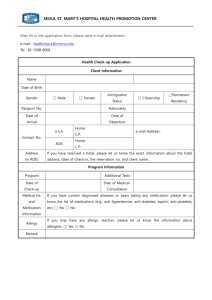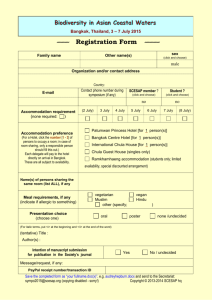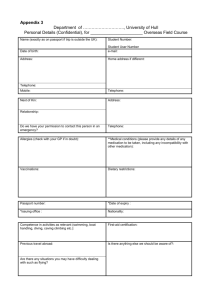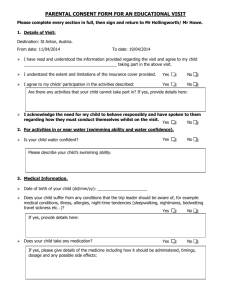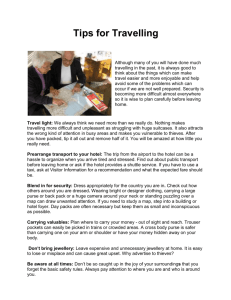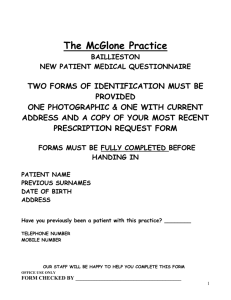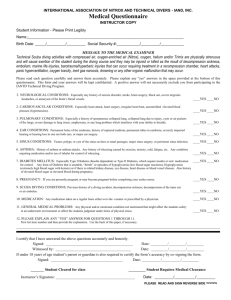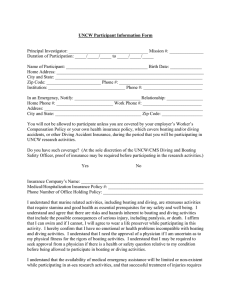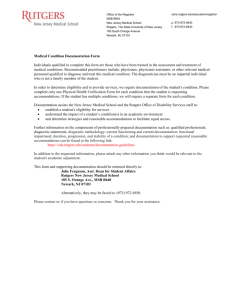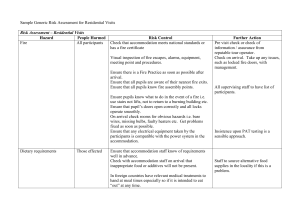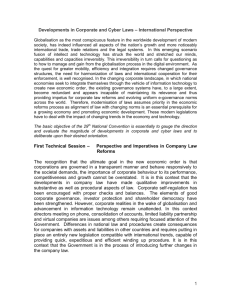International Travel - Hazards and Risk Mitigation
advertisement
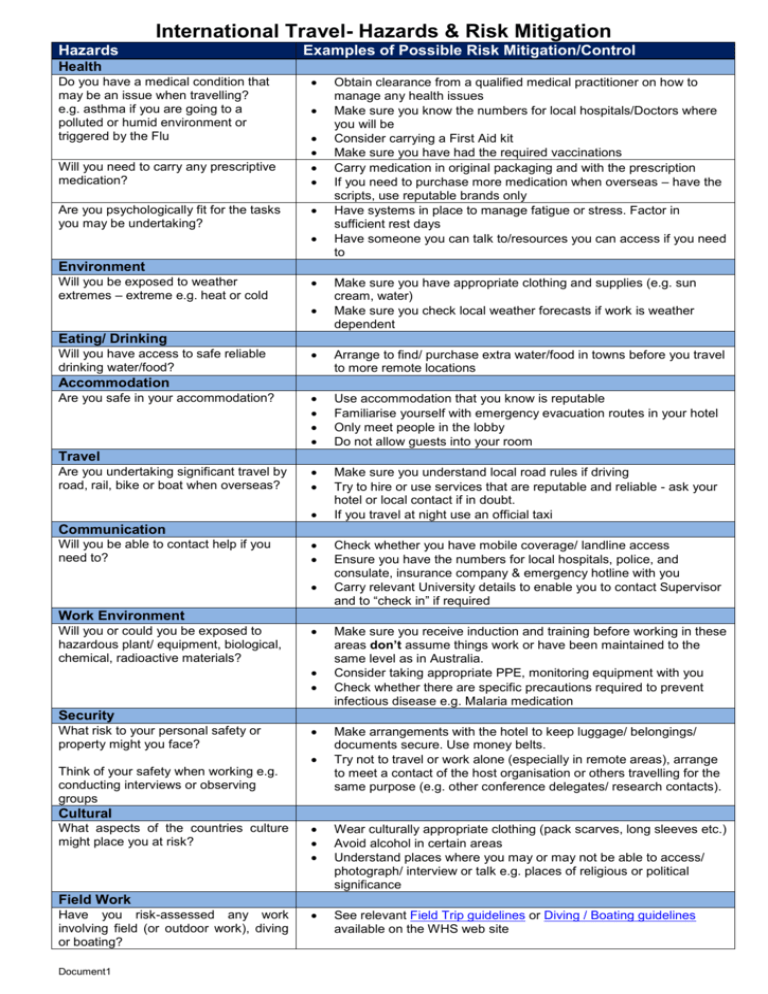
International Travel- Hazards & Risk Mitigation Hazards Examples of Possible Risk Mitigation/Control Health Do you have a medical condition that may be an issue when travelling? e.g. asthma if you are going to a polluted or humid environment or triggered by the Flu Will you need to carry any prescriptive medication? Are you psychologically fit for the tasks you may be undertaking? Obtain clearance from a qualified medical practitioner on how to manage any health issues Make sure you know the numbers for local hospitals/Doctors where you will be Consider carrying a First Aid kit Make sure you have had the required vaccinations Carry medication in original packaging and with the prescription If you need to purchase more medication when overseas – have the scripts, use reputable brands only Have systems in place to manage fatigue or stress. Factor in sufficient rest days Have someone you can talk to/resources you can access if you need to Environment Will you be exposed to weather extremes – extreme e.g. heat or cold Make sure you have appropriate clothing and supplies (e.g. sun cream, water) Make sure you check local weather forecasts if work is weather dependent Eating/ Drinking Will you have access to safe reliable drinking water/food? Arrange to find/ purchase extra water/food in towns before you travel to more remote locations Use accommodation that you know is reputable Familiarise yourself with emergency evacuation routes in your hotel Only meet people in the lobby Do not allow guests into your room Make sure you understand local road rules if driving Try to hire or use services that are reputable and reliable - ask your hotel or local contact if in doubt. If you travel at night use an official taxi Accommodation Are you safe in your accommodation? Travel Are you undertaking significant travel by road, rail, bike or boat when overseas? Communication Will you be able to contact help if you need to? Check whether you have mobile coverage/ landline access Ensure you have the numbers for local hospitals, police, and consulate, insurance company & emergency hotline with you Carry relevant University details to enable you to contact Supervisor and to “check in” if required Work Environment Will you or could you be exposed to hazardous plant/ equipment, biological, chemical, radioactive materials? Make sure you receive induction and training before working in these areas don’t assume things work or have been maintained to the same level as in Australia. Consider taking appropriate PPE, monitoring equipment with you Check whether there are specific precautions required to prevent infectious disease e.g. Malaria medication Security What risk to your personal safety or property might you face? Think of your safety when working e.g. conducting interviews or observing groups Make arrangements with the hotel to keep luggage/ belongings/ documents secure. Use money belts. Try not to travel or work alone (especially in remote areas), arrange to meet a contact of the host organisation or others travelling for the same purpose (e.g. other conference delegates/ research contacts). Cultural What aspects of the countries culture might place you at risk? Wear culturally appropriate clothing (pack scarves, long sleeves etc.) Avoid alcohol in certain areas Understand places where you may or may not be able to access/ photograph/ interview or talk e.g. places of religious or political significance See relevant Field Trip guidelines or Diving / Boating guidelines available on the WHS web site Field Work Have you risk-assessed any work involving field (or outdoor work), diving or boating? Document1
